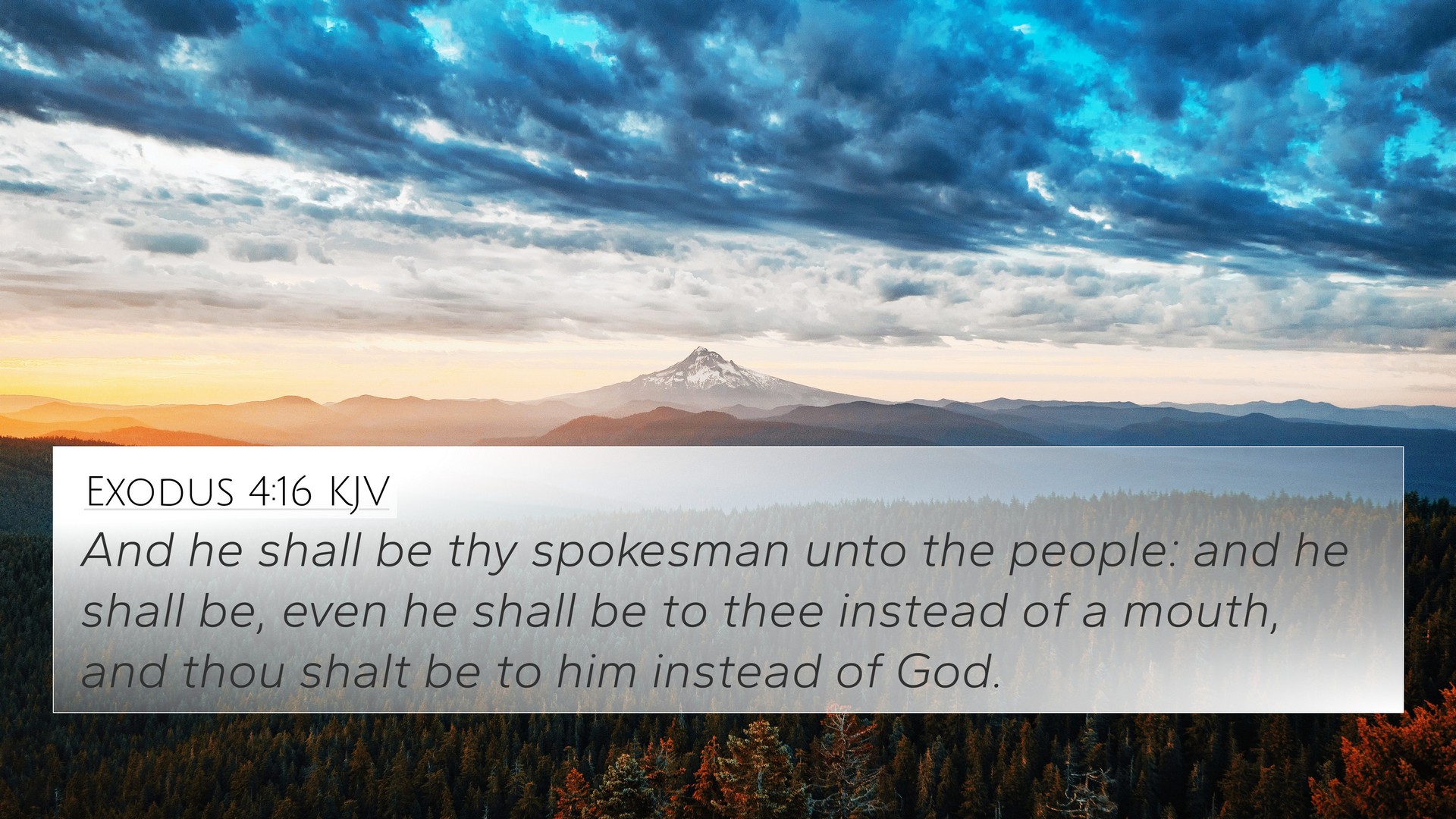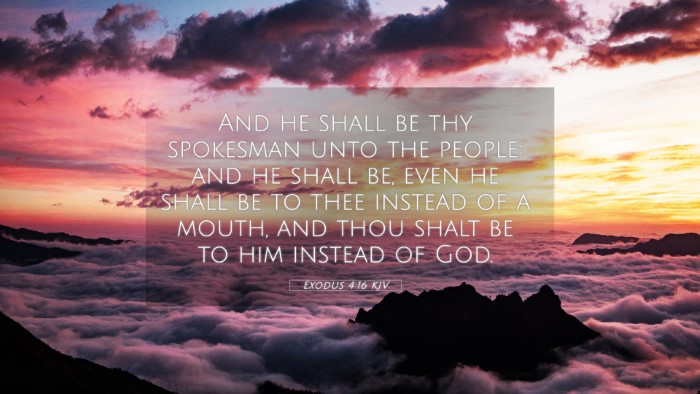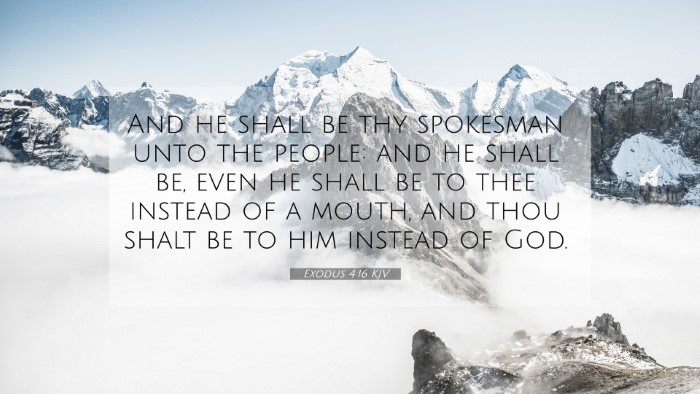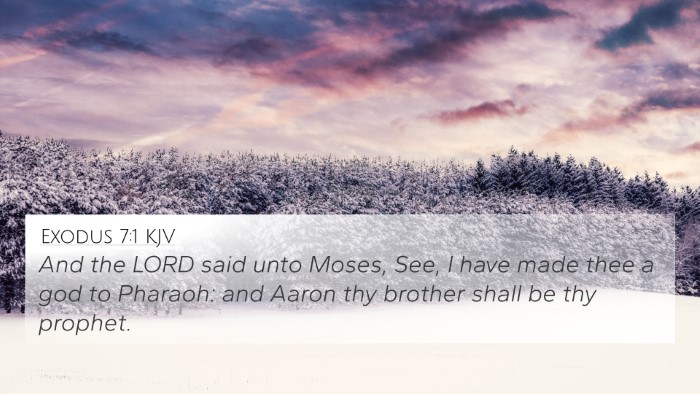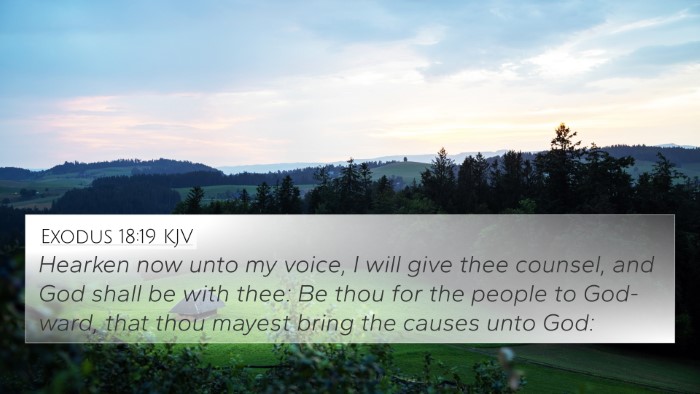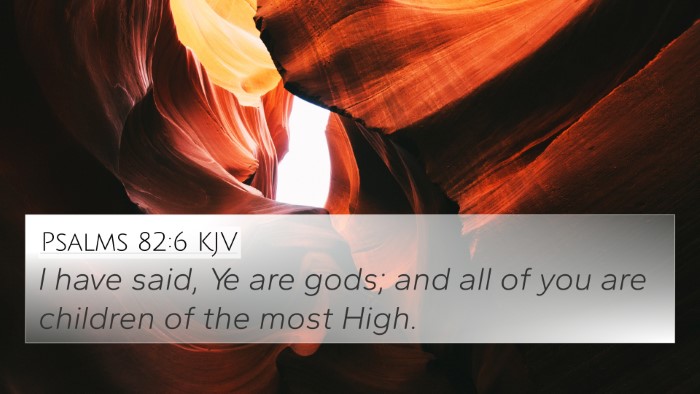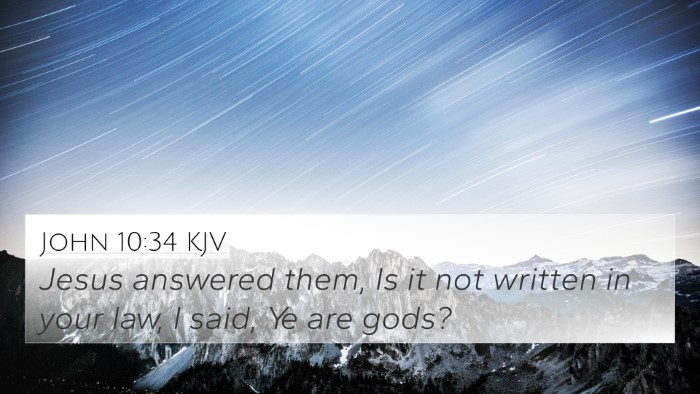Exodus 4:16 - Meaning and Interpretation
Exodus 4:16 states, "And he shall be thy spokesman unto the people: and he shall be, even he shall be to thee instead of a mouth, and thou shalt be to him instead of God." This verse occurs during God's appointment of Moses as the leader of the Israelites, where He designates Aaron as Moses' spokesperson. This passage is rich in meaning and has garnered attention from various public domain commentaries. Below is a combined summary of these insights.
Contextual Overview
In the book of Exodus, God commissions Moses to lead the Israelites out of Egypt. Despite Moses' initial reluctance, God assures him that he will not face this monumental task alone. Here, God introduces Aaron as Moses' mouthpiece, emphasizing the importance of communication in fulfilling divine purposes.
Theological Insights
- Divine Appointment: The role of Aaron signifies not only a partnership in leadership but also a deeper connection to divine authority. The designation of Aaron as Moses' spokesperson highlights God's provision in leadership roles (Albert Barnes).
- Symbolic Leadership: By stating that Moses will be to Aaron as God, the passage underscores Moses' role as a mediator between God and the people, reminiscent of later biblical themes where mediators are essential (Matthew Henry).
- Communication in Leadership: The necessity of effective communication is highlighted in this verse. Moses' apprehension about public speaking is addressed by God through the provision of Aaron, illustrating that divine work often requires human collaboration (Adam Clarke).
Bible Cross-References and Their Connections
This verse can be understood better with cross-references that highlight similar themes of divine appointment and mediation:
- Exodus 3:10: God's call to Moses to deliver Israel from Egypt.
- Acts 7:35-37: Reference to Moses as a ruler and deliverer.
- 1 Corinthians 3:5: Discusses how individuals serve different roles in God's work.
- Hebrews 3:5-6: Compares Moses as a servant in God's house, emphasizing the role of Christ.
- Matthew 10:20: Assurance that the Holy Spirit will speak through believers, linking to the concept of divine communication.
- 1 Timothy 2:5: Illustrates the mediatorial role of Christ, drawing parallels to Moses’ role (and Aaron's) as mediators between God and humankind.
- 2 Corinthians 5:20: Believers as ambassadors for Christ, akin to Moses and Aaron's roles in communicating God's will.
Thematic Connections
The relationships presented in Exodus 4:16 reveal significant thematic connections throughout the Bible. These themes revolve around God’s presence, human inadequacy, and the necessity of divine assistance:
- God’s Provision: Reflects the overarching theme of God's provision for His people, shown through His assistance to Moses in the form of Aaron.
- Human Empowerment: The passage exemplifies how God empowers individuals to fulfill His commands, a recurring principle illustrated in various biblical narratives.
- Leadership and Responsibility: Highlights the challenges of leadership and the importance of having the right support systems in place, a principle echoed in many cross-referenced scriptures.
Conclusion
Exodus 4:16 reflects profound insights into leadership, communication, and divine support. Through the inter-Biblical dialogue, connections between this verse and others further clarify its importance in understanding God's plan for humanity. By studying the themes and cross-references, we can appreciate the intricacies of God's interactions with His chosen leaders and the broader narrative of scripture.
Discovering Cross-References
For those interested in exploring how to find cross-references in the Bible, various tools such as a Bible concordance or a Bible cross-reference guide can aid in locating connections between verses. Engaging in cross-reference Bible study allows individuals to uncover deeper meanings and relationships within the scriptures, fostering a greater understanding of God’s message.
